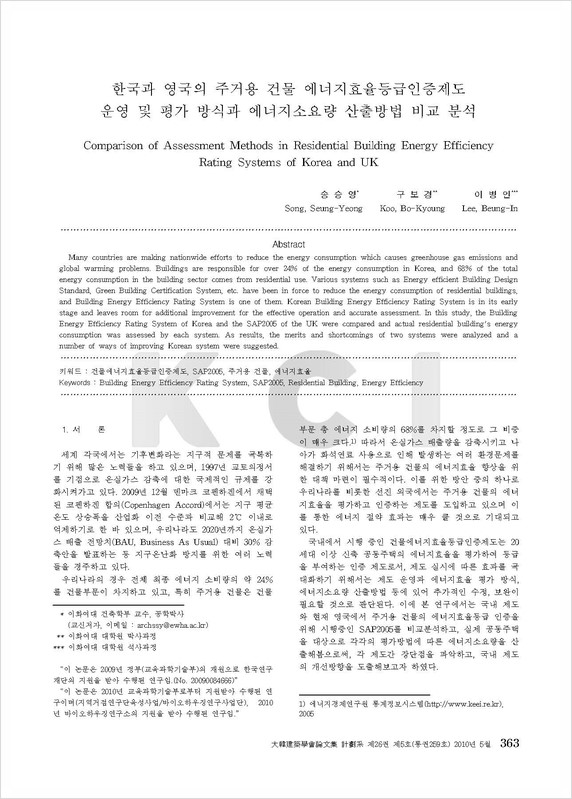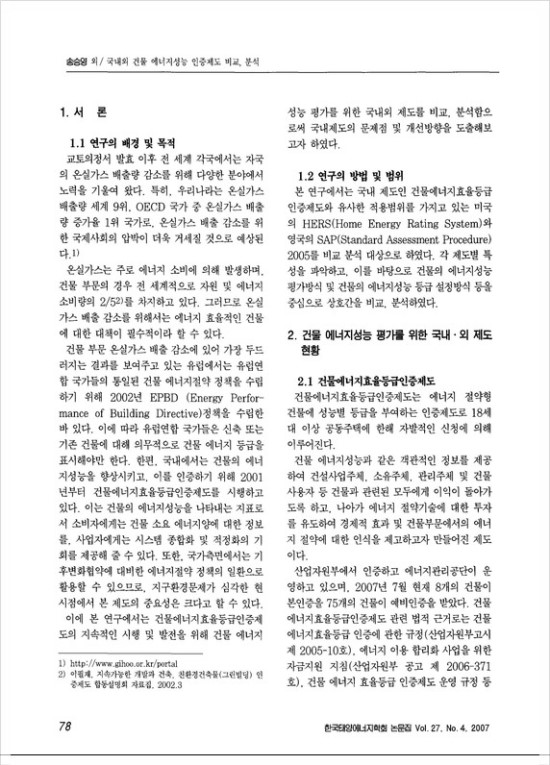한국과 영국의 주거용 건물 에너지효율등급인증제도 운영 및 평가 방식과 에너지소요량 산출방법 비교 분석

한국과 영국의 주거용 건물 에너지효율등급인증제도 운영 및 평가 방식과 에너지소요량 산출방법 비교 분석 Comparison of Assessment Methods in Residential Building Energy Efficiency Rating Systems of Korea and UK 저자 송승영, 구보경, 이병인 소속 이화여자대학교, 이화여자대학교, 이화여자대학교 학술지정보 대한건축학회논문집(계획계) 발행정보 대한건축학회 2010년 자료제공처 국회도서관 국립중앙도서관 NRF 주제분야 공학 > 건축공학 <초록> Many countries are making nationwide efforts to reduce the energy consumption which causes greenhouse gas emissions and global warming problems. Buildings are responsible for over 24% of the energy consumption in Korea, and 68% of the total energy consumption in the building sector comes from residential use. Various systems such as Energy-efficient Building Design Standard, Green Building Certification System, etc. have been in force to reduce the energy consumption of residential buildings, and Building Energy Efficiency Rating System is one of them. Korean Building Energy Efficiency Rating System is in its early stage and leaves room for additional...
